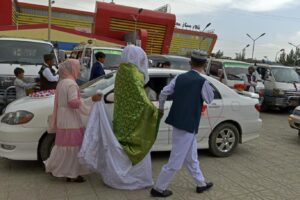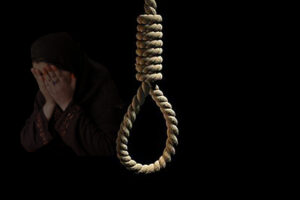For the people of Afghanistan democracy seems to be a new terminology in their dictionary but this term existed many years back in western societies.
Written by: Faramarz Barzin
American University of Afghanistan
Graduate Political Science & Public Administration
For the people of Afghanistan democracy seems to be a new terminology in their dictionary but this term existed many years back in western societies. Abraham Lincoln, former United States president defines democracy as the government of the people, by the people, for the people (Democracy Building, n.d.). In the last couple of decades, many countries adopted the new system of government which was a democracy (Weale, 1999). This turn was mostly done after the collapse of soviets and mostly the communist regime itself. People around the world have different conceptions about this term which are still highly debated in international politics. Afghanistan has a very short history of democracy unlike other countries in the west and Europe. People of Afghanistan became familiar with this term after the collapse of the Taliban regime in 2001. With the U.S. invasion of Afghanistan, the new political system adopted was democracy and the democracy-building started at that point. Twenty years after that many analysts believe that Afghanistan was a failed democracy. According to Diamond (2006), democracy in post-conflict societies face huge challenges and if not correctly addressed the country will come out as a failed democracy. This scenario fits the Afghanistan case as well. One of the key challenges for democracy-building in Afghanistan was the politicization of ethnicity which later on will be discussed that how it negatively affects the process. Hence, in this article, I will answer the question that “How politicization of ethnicity affected democracy in Afghanistan?”. In this article, I will discuss how favoritism of institutions, ethnic domination, undemocratic leaders, ethnic cleavages, and immature democracy in Afghanistan led to the politicization of ethnicity and how it affected the democracy in Afghanistan.
Firstly, the favoritism of government institutions can lead to ethnic politicization and the failure of democracy. According to Weale (1999), a society is composed of both, conflict and cooperation. People in a society cooperate on certain things for managing their daily affairs. Like the establishment of institutions, where most of the people refer to, is a type of cooperation. However, the conflictual side is different. When specific institutions act in accordance to benefit of certain people and against certain other, then the ground for oppositions based on ethnicity, clan, tribe, language, and religion will be open. So, this theory suggests that politicization of ethnicity can happen in a society when the interest groups do not get what they want so they try to get that by other means such as mobilization of people based on ethnicity, religion and many other things. The theory states that this is the time when ethnic politicizations start. This was the same case in Afghanistan during the civil war and all the parties engaged in the war were competing for getting more resources. However, after the establishment of the new state in 2001 this sort of ethnic politicization was seen less because the interests of most of the groups were embedded in the new democratic constitution so it was less likely for parties to have limited resources.
Furthermore, ethnic domination can also be a factor for the politicization of ethnicity in Afghanistan which resulted in democracy not to work. Weale (1999), states that democracy itself cannot assure the presence of all the groups in a society in political decision making. So most of the democracies favor the system of majority. Whoever is the majority will rule on other minorities. This creates ethnic domination. Ethnic domination will exclude others to take part in political decision makings. That is why leaders of such societies will try to politicize ethnicity and rule the country. This sort of governance will surely can’t be a democratic one because the right of others will be excluded in such a society. However, there was ethnic domination in Afghanistan after 2001 but since there is no major ethnicity in Afghanistan this factor was not a big contributor for democracy not to work. Most of the ethnicities had some sort of political role – even if sometimes it was symbolic – in the post-2001 government in Afghanistan.
Additionally, undemocratic leaders can also be a factor for ethnic politicization and failure of democracy. According to Diamond (2006), the post-conflict societies which are ruled by an undemocratic leader or party will create ethnic divisions among people and the intervention of the international community will also have a light impact on them. This theory fits Afghanistan very well. However, at the beginning of U.S. invasion, the international community and the United States itself put lots of efforts to building state institutions but the history has proved that no matter how good your institutions are if the leader is undemocratic democracy will not work there. An undemocratic leader in a post-conflict society will likely politicize ethnicity and use it for his/her interests and this is what happened in 2014 and 2019 elections in Afghanistan. In the 2014 presidential election, ethnicity was highly politicized by the leaders and both runner-up candidates were mobilizing people based on their ethnic background for achieving their political goals and maximizing their power.
Moreover, ethnic cleavages can lead to the politicization of ethnicity. According to Diamond (1990), ethnic cleavages cannot be killed or destroyed, they will remain alive but there should be a possible mechanism to moderate it. According to the author, there can be four ways of managing ethnicity in a democratic state. Federalism, proportionality, minority rights, and power-sharing. Afghanistan has a presidential type of system of governance so according to this theory, the formation of the system is wrong in a multi-ethnic society like Afghanistan. So, these ethnic cleavages will politicize ethnicity because there will be no power-sharing or proportionality in a presidential type of governance and the ruler will use ethnicity as a tool to suppress and exclude other groups in the society. According to Schetter (n.d.), an ethno-federalism and quota system can help multi-ethnic states to become democratic. The case can be applied in Afghanistan as well and it can even be successful if correctly implemented.
Lastly, immature democracies can create an atmosphere for the politicization of ethnicity and failure of democracy. According to Zakaria (1997), democracies don’t lead to ethnic harmony and peace and immature democracies are more likely to get in ethnic conflict and even at one point into the war. This theory suggests that if a country is a newly democratic or illiberal democracy then ethnicity will be at high risk of politicization. The case can apply to Afghanistan as well. Afghanistan is a new democracy and the risk for ethnic conflict and war is very high. As previously mentioned, in 2014 presidential elections the risk of ethnic war for getting the power was very high and this was all because of the immaturity of democracy in this country. The electoral process was highly criticized at that point and it was because Afghanistan was at the beginning of practicing democracy. So, immaturity of democracy can highly push that society to the politicization of ethnicity and in the future to sever ethnic conflicts which were nearly to happen in Afghanistan in 2014.
Conclusion:
All in all, Afghanistan started practicing democracy post-Taliban regime. Afghanistan is a multi-ethnic country thus the application of democracy was not that much inevitable and led democracy to become a failure in this country. In this paper, I had answered the question that “How politicization of ethnicity affected democracy in Afghanistan?”. I had used the qualitative research method for writing this paper which includes desk reviews. In the body of this paper, I have discussed many theories concerning ethnicity and democracy and applied them into my case (Afghanistan) particularly. I have discussed that how favoritism of state institutions, ethnic domination by one specific ethnicity in society, undemocratic leaders, ethnic cleavages, and immature democracies can lead to the politicization of ethnicity and ethnic conflict and how did these factors affected the status of democracy in Afghanistan.
References:
Diamond, L. (2006). Promoting Democracy in Post-Conflict and Failed States Lessons and Challenges. Taiwan Journal of Democracy, Volume 2, No. 2: 93-116.
Diamond, L. (1990). Three Paradoxes of Democracy. Journal of Democracy, Volume 1, Number 3. DOI: 10.1353/jod.1990.0047
Democracy Building. (n.d.). A Short Definition of Democracy. Retrieved from: http://www.democracy-building.info/definition-democracy.html
Schetter, C. (n.d.). Ethnicity and the Political Reconstruction in Afghanistan. Center for Development Studies (ZEF), University of Bonn, Germany. Retrieved from: https://www.files.ethz.ch/isn/129100/schetter.pdf
Weale, A. (1999). Democracy: Issues in Political Theory. London, UK. Macmillan Press LTD.
Zakaria, F. (1997). The Rise of Illiberal Democracy. Council on Foreign Relations. Vol. 76, No. 6. Retrieved from: http://www.jstor.org/stable/20048274
ENDS






